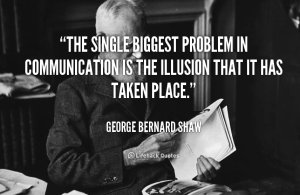Networking. It’s a dreaded word, but it has to be done in business. Going to conventions, conferences, chillin’ at a MeetUp, or even just running out to the store can somehow bring up the question, “What do you do?” We all know it’s important to nail this. It could make the difference between a valuable connection and one that goes no where.
When I say valuable, I mean valuable. It’s one thing to make a client, but it’s another to start making partnerships and business deals that could help you grow a lot further. No pressure or anything, but you know, get it right and you’ll save yourself a lot of stress.
First, get your message straight
I used to babble or freeze up. I’ve tried a few different approaches that I’ve learnt at different “free summits,” too. Some of the most creative were the ones that wouldn’t answer with that dreaded boring job title, but rather how you serve people. It goes like this:
“You know how plants grow well one year, but not the next? I help homeowners and farmers figure out why and correct it. During this hands-on process, I train kids in the science as well as the business.”
But, it took me a good long while to get to that phrase. I didn’t know how to combine the science part with the apprenticeship part. To be honest, the message still isn’t smooth, but it’s better than babbling.
That was the most interesting elevator format I’ve used, and it works to open a conversation 80% of the time. The other 20% of the time it wasn’t landing. So, I would use something along the lines of what Insanitek is growing into: A science apprenticeship firm. It’s just different enough that people would raise an eyebrow and ask for more information.
Getting your message right will take time and practise.
Start with the basics.
I remember sitting down with my first branding relationship. “What do you sell?” Huh? I sell science. I sell education. I sell an alternative way to live life. But I had no idea how to say any of that.
Most people want to know how your product or service will tangibly change their life. Then, they also want to know if their world view aligns with yours. I recently had this printed on my new planner:
-
-
-
-
- Service comes first
- Science is the foundation
- Principles are the scaffolding
- The mission is the roof and walls
-
-
-
This reminds me not just of the ideas that Insanitek was built on, but also reminds me to keep these values at the front of all the conversations. Not in the braggadocio way, but rather in a way that shows that we serve, shows that science is what we do, and makes sure that anything we say yes to aligns with our principles and mission.
Then figure out how your message can define your relationships.
As any business grows, you’ll have more opportunities to interact with people. How do you want to be presented?
Everyone that comes in contact with me knows Insanitek is about doing and teaching science. They know that we come from a place of service, and help people from the place that they are in. They know that we will, time permitting, gladly help people in summer programmes and other such things as it helps further our mission and love of science.
So, if we were approached by a big corporation about a partnership, we’d ask, “How does this also serve our clients? How does this further our message? Do their principles conflict with our own?” Same thing with sharing affiliate links or even recommending a product.
For example, an e-course I took called Persuasive Profits by Sharí Alexander. This course taught THIS introvert how to connect better, but then also move past knowing and understanding people to the realm of being able to say, “I can help you solve that.” And even better, get compensated. So, before sharing that referral link, I thought about how it could help you, how it interacts with our message, and the principles that Sharí teaches. While I don’t agree with everything she teaches, I do believe it could help a lot of people. Introverted or not.








